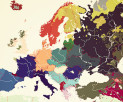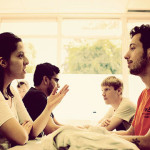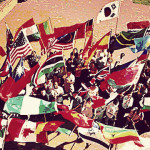Enrolment spike at European Languages and Cultures
The increase is fairly easy to explain, according to department board secretary Bob de Jonge. The programme will be adding an English-taught track in September, and ‘the faculty has really put some effort into marketing the English track in particular at recruitment fairs’, De Jonge says.
‘Wait and see’
Even though the jump in numbers is remarkable, De Jonge is aware that not every student is guaranteed to show up in September. However, roughly half of those who have signed up are ‘very advanced in the registration process’, De Jonge says. In past years, around 60 to 70 per cent of students who indicated their intention to enter the programme ended up doing so.
During the University Council meeting on Thursday, rector Elmer Sterken also suggested that the numbers should be taken with a grain of salt. ‘The numbers in European Languages and Cultures are nice, but we still have to wait and see if they actually show up.’
Sterken says that students are more frequently signing up for multiple programmes in various cities and then later choosing among the schools where they are accepted. ‘The predictive strength of this data is decreasing because the approach that students are taking to enrolment is undergoing important changes.’
More urgent
European Languages and Cultures was already in the process of hiring additional staff members, including a couple of full professors, at least three assistant professors and several language proficiency teachers. ‘But because the numbers are so high, this plan has become a bit more urgent now’, De Jonge says.
For the department within the arts faculty, the remarkable numbers have both pros and cons. ‘On the one hand, it is a relief because the content of the courses is really turning out to be something that the market was calling for’, De Jonge says. But ensuring a good ratio of staff members to students and arranging study abroad placements become a greater challenge with more students.
De Jonge also believes that the course offering itself is interesting to students. ‘What we have found out is that students are still very much interested in languages, it’s just the societal impact of the former language studies that students were less interested in.’





